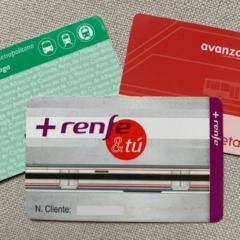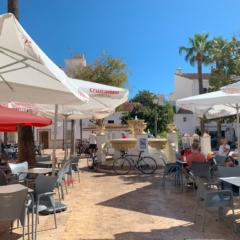Manãna mañana

When you book an appointment, quite often the person doesn’t come; then you call back and receive a vague explanation that concludes in “mañana mañana” (tomorrow, tomorrow). Then tomorrow the same thing happens… so frustrating. Along with okupas, high taxes and difficulty to park, this is one of my dislikes about Spain.
Despite the dictionary translation of mañana as tomorrow (or morning), I suspect that when it comes doubled – mañana, mañana – it is better translated as either ‘no’, ‘never’, ‘maybe’ or ‘I don’t know’. Let me share some real-life examples, all taken from our first months in Spain.
Mañana Mañana 1: Car dealership
We have experienced this greatly with our car dealership. We paid part of the car on the agreement and were meant to pay the rest on delivery, as the car was on another city. The car company was supposed to call us to go get the car in two weeks, when the car was supposed to arrive. We waited for 3 weeks without a call; we called and heard it would arrive “mañana, mañana”. Next day, we called again and heard that due to a truck driver’s strike, it was postponed again to tomorrow. Next day, it didn’t arrive as well, still due to the strike.
We waited three more days and… the car that arrived was not ours, it was a mistake. But tomorrow our car would be here, (!?! how?) Mañana, mañana. Eventually it arrived, and they called. I think it was a total of 5 weeks, despite the initial promise of two.
Mañana Mañana 2: Moving company
We have experienced a similar situation with our moving company. Though the good’s delivery was not delayed, every time we had a question about it or the documents we had to present, someone would have to be asked and would contact us mañana (but they did call, so it was a mild form of mañana, mañana).
Mañana Mañana 3: Contractors
Also happened with contractors. After buying our apartment, we wanted to insulate the roof. We called 3 companies, which promised to come to see the place to give us a price offer the next day and simply didn’t show. I would call back and the answer was always that the person got stuck in another service, but mañana they would come for sure. Guess what? Nada (nothing).
I started to wonder if the problem was me; maybe my less than perfect Spanish was causing me to be unintentionally rude on the phone or something of the kind. On top of that, I was already out of recommendations and didn’t know who else to call; we had no other choice but to give up on the renovation momentarily.

We eventually got lucky when I was going to the grocery shop and a saw a car parked right in front of my building door that read “pinturas y reformas” (paintings and renovations). I thought, ‘well, if they are already here, they certainly will come and give me a price offer!!!’ It is hard to explain how exciting this thought was. I took a picture of the car and practically stood on one knee to beg the guy next to the car “will you see my roof?” To which he said…
‘No. You have to call my boss and book a time with him’. I did insist, but he insisted on the boss thing, too. It worked, though; maybe I transpired enough despair and provoked a lasting pitiful response, because this guy’s boss did come to see the roof on the agreed date and time. And they did a great job on the roof insulation.
I took the unique opportunity of having a working crew (and their boss!) at home to try to understand what had happened with the 3 other companies. They kindly explained that the demand for construction work is enormously high in the Costa del Sol and in particular at that time of the year (June), right before or on summer, when everybody and their mother is making last minute renovations in order to rent their places to tourists. They also said I wasn’t rude, which is comforting.

Possible reasons for Mañana mañana
On the contractor’s situation I guess the Mañana mañana thing stems from an aversion to disappoint. I speculate that somehow it feels better to let one with some hope than to simply and straightforward break one’s heart with a frank attitude – It would possibly feel rude to say they are not interested in my job because it is too small or complicated and they can choose something they like better (though I would have preferred the frank approach).
On the car situation it probably had to do with fear of losing a sale – I was more likely to buy if they promised 2 weeks than 5, right? – coupled with the strike – which was, by the way, true. Still, when the strike was already on, and when they admittedly transported the wrong car, keep promising for tomorrow was probably just automatic or maybe an answer they thought was better than “I don’t know at all when your car will arrive” (though I would have preferred the frank approach here as well).
Finally, I think the moving company people were telling me mañana because it was true – they didn’t know the answer and someone else would reach the next day. In this case, mañana was an honest answer.
Conclusion
In any case, the mañana, mañana thing is intrinsically a part of the Spanish way to do business. It fits both the kind and the clueless. It ends a conversation on a hopeful note, but without a reliable conclusion. Don’t take it literally; if it comes in pair, beware and be prepared.








